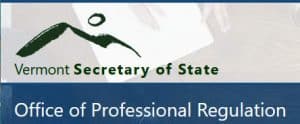Vermont considers mental health licensure reform

New recommendations from Vermont’s Office of Professional Regulation’s (OPR) aim to streamline licensing for the state’s mental health professions.
A new report from the OPR suggests expanding the scope of Vermont’s Board of Allied Mental Health (BAMH) to oversee all new mental health credentials and include all current advisor mental health professions, such as social work, alcohol & drug abuse counseling, applied behavior analysis, and psychoanalysis.
In addition to creating a larger pool of licensed mental health providers for patients, the changes could mean more consistent entry qualification standards across the disciplines, and a simpler path for professional conduct enforcement.
The OPR conducted research over an 18-month period, surveying more than 100 stakeholder organizations and speaking with approximately 2,000 individual stakeholders.
As the mental health space has grown, Vermont’s licensing process has sprawled across multiple organizations. There are currently two credentials under the Board of Psychological Examiners and three under the BAMH: Clinical Mental Health Counselors, Marriage and Family Therapists, and Non-Licensed and Non-Certified Psychotherapists.
Then, there are also eight credentials under the advisor model, meaning they are regulated by the OPR but not a dedicated board. The OPR will soon begin regulating four new mental health credentials for creative arts therapies and peer support roles.
All stakeholders polled for the study were concerned about sufficient board representation. Study participants were generally in favor of expanding the Board of Allied Mental Health (BAMH), the OPR’s umbrella mental health board, with the caveat that OPR ensure adequate representation for each profession.
Psychologists, the Board of Psychological Examiners, and the Vermont Psychological Association didn’t oppose expanding the BAMH with the advisor professions but were opposed to merging their own board with the Board of Allied Mental Health.
One stakeholder commented: “As the legislature considers moving toward an “umbrella board model” for mental health, I would ask that they consider the complexity of understanding the specialties within each profession…As a psychologist, I would find it difficult to address issues brought up in a social work board meeting. I have not been trained to look at issues through the lens of a social worker. I imagine my colleagues in the other professions would find it equally difficult when addressing issues specific to psychology.”
James Benton, Ph.D., senior director psychology services, director of psychology training, at Vermont’s Brattleboro Retreat, told New England Psychologist that OPR’s proposal offers creative ideas to reduce barriers to entry for qualified mental health professionals. But, implementing these ideas might be challenging given the multiple disciplines involved.
OPR’s current licensing process for psychologists is straightforward, he said.
“I do not see any downside to streamlining the licensing process, as long as appropriate standards for training, supervision, and work experience are maintained,” said Benton. “Hopefully this will result in patients being able to more easily find qualified mental health professionals.”
The report also cited the potential to streamline entry-level qualifications for mental health professionals, without lowering professional competency requirements. Strategies to simplify and standardize Vermont’s rule with other states could include expanding education coursework supplementation pathways to licensure, reducing redundant exams required for licensure, eliminating arbitrary supervised practice rules, and reducing overly burdensome continuing education requirements.
The OPR also identified barriers to entry into mental health professions for marginalized groups, such as a lack of accommodations in licensing exams for applicants, and a lack of representation among Vermont’s clinical supervisors.
“Unintended barriers to access are obstacles that can hinder marginalized groups from fully participating in society, even when there are no explicitly discriminatory policies in place,” the report noted.
The report also addressed the shortage of clinical supervisors in Vermont, despite the only requirement being at least three years of active practice. The OPR recommends rules to standardize supervisor contract language, evaluations for independent practice, and continuing education requirements, with the goal of promoting trainees and supervisors.
